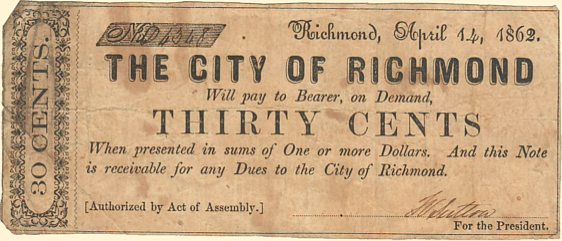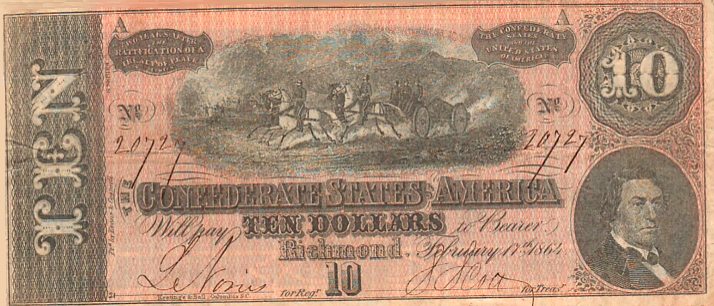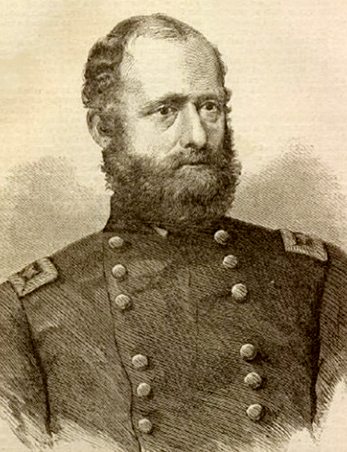This is the seventh essay in an occasional series. Previously: Part 1, Part 2, Part 3, Part 4, Part 5, Part 6

Requiem for a Culture
Part 7: The Traitresses of Roswell
The past is never dead. It’s not even past.
— William Faulkner, Requiem for a Nun, Act I, Scene III (page 80 in the Vintage paperback edition)
In the annals of the American Civil War, the story of the women of the Roswell cotton mill in Georgia is relatively obscure. I had never even heard of the incident until just a few days ago, when a talk was given at a meeting of the Sons of Confederate Veterans.
In July of 1864, during the march on Atlanta, Union General Kenner Garrard burned the mills at Roswell in northern Georgia. The cotton mill in Roswell had been producing fabric for Confederate uniforms, plus tent cloth and other products destined for military use.
The next day, under General Sherman’s orders, General Garrard arranged for the deportation of about 400 civilians, most of them women and children. The women had worked in the mill, and were thus judged by General Sherman to have committed “treason”. They and their offspring were carried by wagon to Marietta, where they were loaded onto railroad cars and shipped north, first to Nashville, and then to Louisville. From there they were deported across the Ohio River into Indiana. Whatever processing they underwent after that was rudimentary; they were basically abandoned, and left to their own devices.
An undetermined number of the deportees died in transit under horrific conditions, and more died after arrival. Almost none of them are known to have ever made it back home, and there are very few records of what became of them.
During their travels they were guarded by Union soldiers, who were probably less bestial than Hamas mujahideen in the treatment of their charges, but still… One may assume that Union soldiers who were suffering from “sexual emergencies” took advantage of the opportunity presented by all those teenage girls in their care.
Also, given the privation those girls were to face in Indiana, it wouldn’t be surprising if many of them joined the ranks of the world’s oldest profession.
Why is it that there are so few historical accounts of what happened to the Roswell women?
The deportees were largely Scots-Irish, the descendants of immigrants who came to western Pennsylvania, Maryland, and Virginia beginning in the early 1700s, and then migrated south along the Appalachians. In other words, they were the poorest of poor whites, commonly known as hillbillies or white trash. My guess is that they were illiterate, or nearly so, and thus never wrote any letters to their relatives back home. No journals or memoirs — they just disappeared into the poverty and chaos of southern Indiana, and were lost to history.
Before I get to more detailed information about the deportation of the mill workers from Roswell, I’d like to touch briefly on the absurd notion that by working in the mill they had committed “treason”.
It reminds me of a conversation I had a couple of years ago while manning a booth for the Sons of Confederate Veterans. Members in period uniforms with muskets had set up a mock encampment with a tent, etc., and next to it were selling Confederate-related merchandise from a small pavilion, which is where I was working.
One young white man came by the booth with a chip on his shoulder, and obviously wanted to argue with us. He wasn’t a Northerner. He was probably a transplant from further north in Virginia, but not a Yankee. I reported on the conversation not long after it happened, in the first post of this series:
Visitor: “I just want to know why you people think it’s a good idea to do this, to pay respect to traitors.”
Baron: “We’re here to honor our ancestors, who fought to defend the Commonwealth of Virginia. We were invaded, you know — just like Ukraine was invaded by the Russians.”
V: “But Ukraine is different. It was invaded by the forces of a completely different country.”
B: “Exactly. And Virginia was sovereign until 1865. Did you know that? It considered itself a sovereign state. You can see it in the printed materials from the time: ‘The Sovereign Commonwealth of Virginia’. Union troops came up the Shenandoah Valley, torching the fields, requisitioning food and supplies, and taking prominent citizens hostage for the good behavior of their fellow townsfolk. We were invaded, and we were defending ourselves.”
V: “Well, I have an ancestor who fought, and I don’t want to honor him. I don’t know anything about him, and I don’t want to know, because he was a traitor.”
It’s a peculiar idea, that someone who resists the invasion of a sovereign state might be considered a traitor to the invading country. Imagine, for example, a war between Prussia and the Kingdom of Saxony. Saxony was an independent, sovereign state until 1871, when it became one of the states comprising the newly-formed German Empire. Prior to 1871, if Prussia were to invade Saxony, it would be the duty of every able-bodied adult Saxon male to take up arms and resist the invader. If Prussia won the war, it might annex Saxony, or turn it into a vassal state owing fealty to the King of Prussia. But nobody involved, whether Prussian or Saxon, would have considered a Saxon who fought back against the Prussians to be a traitor to Prussia. The idea would have been ludicrous, and would never have been entertained.
The same is true of any Virginian who resisted the invasion of his sovereign state between 1861 and 1865. Or should be true, but we live in a degraded age in which language has been torqued beyond belief, and the ability to think logically about this and similar matters has atrophied.
The North won the war, and therefore got to write the terms of political arrangements afterwards. Among those terms was this: any citizen of the sovereign South who dared to resist Northern aggression was retroactively to be identified as a TRAITOR to an entity that didn’t exist before 1865. Dig it?

The paragraphs below are excerpted from “Charged With Treason: The Plight of the Roswell Women” from the American Civil War Forum:
At the time of the American Civil War, the four hundred women employed by the Roswell Mills were mostly of Scottish-Irish descent. As the mill increased in production, so did the number of people living in the area, but once the war was in full swing, the leading families of Roswell fled in advance of Sherman’s army, leaving the fate of the mills and their employees in the hands of Federal forces. Innocent civilians were left to fend for themselves and receive the entire brunt of Sherman’s wrath and vengeance.
Looking for a way to get his army across the Chattahoochee and thus into Atlanta, on July 6, 1864, Sherman sent General Garrard back upstream with orders to capture Roswell. In Garrard’s report to Sherman, he relayed that, “there were fine factories here. I had the buildings burnt, all were burnt. The cotton factory was working up to the time of its destruction, some 400 women being employed.” On July 7, 1864, Sherman wrote to General Garrard, “I repeat my orders, that you arrest all people, male and female, connected with those factories, no matter the clamour, and let them foot it under guard to Marietta, then I will send them by cars to the North.”
Thus the Roswell women were charged with treason and deported from the only homes they had ever known.
[…]
The women of the Roswell Mills and their children were kept in the open town square in the blistering heat of a Georgian July, before they were forced to march to Marietta. Roswell’s whiskey stores found their way into the hands of the Union guards and from that time on and during their escort to Marietta, the young girls of Roswell lived in a continual nightmare.
In 1860, forty per cent of the women living in Roswell were seventeen years old and younger. Therefore, at the time the Roswell Mills were burned to the ground, almost half of the population consisted of young girls on the cusp of womanhood. Along the way to Marietta, many of the women were forced to ride behind the cavalry men, which they hated. One Illinois soldier wrote home, “The employees (Roswell Mills) were all women and they were really good looking. We always felt that we had a perfect right to appropriate to our own use anything we needed for our comfort and convenience.” One Union officer found it necessary to move his troops a mile away from the women in order to control his men.
A northern newspaper correspondent reported on the deportation of the Roswell women, “Only think of it! Four hundred weeping and terrified Ellens, Susans, and Maggies, transported in springless and seatless army wagons, away from their loves and brothers of the sunny South, and all for the offense of weaving tent-cloth.”
The Roswell women suffered immensely during their long journey to Marietta and once they were deported their hardships continued. Some women did find employment in factories while others found themselves starving in the streets with their children. One newspaper published articles begging citizens (The Women Will Howl, M.D. Petite) to come to the aid of the Roswell refugees, while the governor of Indiana wrote to the Secretary of War, pleading for assistance and complaining of large numbers of destitute Southern refugees, living homeless in the streets. Other Roswell women died of disease, starvation, and exposure.
I wonder how many of the above women were forced into ***** in order to survive, or how many bore children by Union soldiers as a result of their “escort” to Marietta?
Union Lt. Col. Jeremiah Jenkins, replying to a Columbia woman who accused him of making war on women and children, “The women of the South kept the war alive and it’s only by making them suffer that we can subdue the men.” This may be the most revealing statement of Sherman’s march to the sea.
[…]
Upon this news reaching the North, a New York newspaper wrote, “It is hardly conceivable that an officer bearing a United States commission of Major General should have so far forgotten the commonest dictates of decency and humanity…as to drive four hundred penniless girls (some pregnant) hundreds of miles away from their homes and friends to seek their livelihood amid strange and hostile people. We repeat our earnest hope that further information may redeem the name of General Sherman and our own from this frightful disgrace.” Sherman said that the women were “tainted with treason and are as much governed by the rules of war as if in the ranks. The whole region was devoted to manufactories, but I will destroy every one of them.”
As an aside, the Civil War Picket makes the interesting assertion that there were in fact some men deported along with women and children:
Union troops rounded up 400 of the Ivy Woolen and Roswell mill workers (a contingent that included 87 men — some soldiers, some deserters), and then added those who worked at the Sweetwater Creek mill, which had also been captured, for a total of nearly 600 people. Five hundred were women and children.
The women who were deported from Roswell have merited little mention in most historical accounts of the war, but at least they now have a monument dedicated to them, thanks to the Sons of Confederate Veterans:
The SCV does an excellent job of recovering and preserving some of the lesser-known stories of the War for Southern Independence, among its many other estimable activities.
If you have at least one identifiable ancestor who served in the Confederate armed forces, and also have at least marginally positive feelings about the CSA, I recommend that you track down a camp in your local area and apply for membership. SCV camps are thick on the ground in the Old South, for obvious reasons, but there has been an extensive diaspora of Southerners in the past 159 years, so that the SCV can also be found in Northern states, and even in places like California and North Dakota.

The story of the Roswell women is horrific, but that’s the sort of thing that happens during wars. All wars.
Which doesn’t imply that there was any moral justification for the action, but rather that it serves as an example of why the North — which means, by extension, the current bloated tyrannical hegemonic federal government of the United States of America — lacks any claim to the moral high ground.
The women and children of Roswell were deported in order to make sure that Washington D.C. could dictate what the Southern states might and might not do, in perpetuity.
Some moral high ground.

Additional reading:
- Explore Georgia
- The New Georgia Encyclopedia
- Creative Loafing
- The Civil War Picket
- The Wikipedia article doesn’t have very much information.



As I’m sure you are aware, the Constitution granted states the right to secede; Lincoln violated this right and in fact started a War over it.
https://www.independent.org/publications/tir/article.asp?id=79 (THE REAL LINCOLN)
I’m also sure you recall THE ANDERSONVILLE TRIAL, quintessential 60s propaganda about purported atrocities committed by the South, while the terrible crimes of the Northern army are to this day swept under the rug. The winning side gets to write the History books, then or now.
Yes. The North won the war. Everything has been decided. My kind are the essence of racist evil. Robert E. Lee should have been melted down long ago. Confederate remains should be dug up and removed from Arlington National Cemetery.
Etcetera.
I look at good ole General Sherman as a prime example of what to do in war, makem HOWL and is an example I look too when dealing 3rd worlders, especially in my Marine Corps days, though my Commanders would look at what I did in complete distaste and horror, you cannot argue with results, for everybody loves sausage, nobody likes the sausage making process. General Sherman’s methods are what we will need to defeat islamic jihad and the invasion of our western lands by the dregs of the 3rd world, oh and please spare me the bloody morality and high moral ground in warfare, for there is none and only those who take the so called high moral ground can live buried in it knowing they took that route, for history only remembers the Victors and could careless how they got that Victory. As for the South and their dead, honor and remember them with pride, leave the statues and memorials where they are.
@ Baron
I am a historian of long experience, but as one who is not, per se, a Civil War historian, I am always gratified to learn new things about it and fill gaps in my knowledge. Since I was heretofore unfamiliar with the tragic story of the Roswell women (I am ashamed to say, since I am a native of the Peach State), please accept my thanks for the article and the information therein.
Both sides committed atrocities; this is the nature of wars. But since the North won, they wrote the histories and the terrible excesses and wanton cruelties committed by the Northern Armies on Sherman’s March to the Sea have been largely expunged from the nation’s historical memory and in large part from its history textbooks.
The American Civil War/War of Rebellion is also significant for another reason, namely that many military historians consider it the first “modern” war, and thus a template for conflicts which came later. The scorched earth tactics employed by Sherman’s armies were later emulated by the British Empire during the Boer Wars as the Crown sought to crush the Boer’s ability to wage war.
These included food blockades, and the internment of large numbers of civilians in de facto concentration camps, amongst other harsh measures. As well, deliberate destruction was made of large swaths of the civilian sector and economy. These punitive measures, too, had their roots in the “total war” between the American North and South.
The fact that the Civil War was considered the first modern or “total” war meant that henceforth, targets could be civilian sectors aiding the enemy military, i.e., such as by growing its food, securing its ammunition and ordnance, etc. – and not just the enemy military forces themselves.
Prior to the American Civil War, at least in the West, wars had been conducted largely between uniformed armies of the opposing sides, and every effort was made to reduce civilian and other innocent casualties. Even as these efforts were not always successful, they were made most of the time. That code of honor and chivalry remained after the American Civil War, but it was weakened in the process and finally more-or-less met its demise in the mud of Flanders in the Great War.
Another factor which aids in understanding the atrocities and crimes which were committed during the Civil War concerns the presence of so-called “bummers” mixed in amongst genuine professional soldiers of the Union Army. These were deserters, malingerers, thieves and murderers who passed themselves off as soldiers by wearing uniforms or parts of them, but who acted as criminals and plunderers.
They generally trailed along in the wake of Sherman’s forces, and since they weren’t harming his men or stalling his advance, General Sherman didn’t do a whole lot to stop the plundering and violence by these hardened criminals, who left a trail of crimes and atrocities such as arson, rape, murder and robbery in their wake.
The crimes of the bummers were often attributed to Sherman’s men proper, so getting an accurate handle on which atrocities and crimes should be attributed to the Union Army proper, and which to the bummers instead, becomes a bit difficult given the spotty and incomplete nature of the historical record.
“Well, I have an ancestor who fought, and I don’t want to honor him. I don’t know anything about him, and I don’t want to know, because he was a traitor.”
one of the stupidest reasoning i have read for today, people dont like to talk or reason, they like fanatism and ideology, not logic; it reminds me many useless discussion i had during the covid pandemy. if the narrative says so it must be so, it is the science, the authority, the government, anyone who does not comply is an enemy and should not be allowed even to talk.
anyway this kind of attitude is that of an agent provocateur, he was just looking for fight.
Yes, he was. And interestingly, he was the only one I saw that day who was like that. Most people, even black people, were friendly and reasonable about the topic. There was some argument, but no one else with a chip on their shoulder.
I just say that I dont like this General. (If I would write what I really think, the Baron wouldnt publish it.)
I went to the wikipedia site of this ahem man and was disappointed.
Not one of the men who lost his wife / fiance / girl friend decided to pay this man a visit.
I read about Jack Hinson who after two of his sons were shot decided to shoot Union officers.
And this brings me to ask the question why not?
Why do we just accept it?
There are countless examples were such things happened (Boer war etc) or where people suffered because of the political correctness of others (yes, I am looking at Jane “Traitor” Fonda) but never does one or more decide to pay them a visit.
“The story of the Roswell women is horrific, but that’s the sort of thing that happens during wars. All wars.”
It is a horrible thing that happened to the Roswell women. All decent people will condemn it. Indeed most countries nowadays would condemn and try to prosecute such abuses.
However there is a difference with those nations informed by the religion and laws of Islam. It is actually Islamic Law to rape captured women. Here is Ali Sina with a quote from the Hadith of Bukhari.
From Ali Sina’s book “Understanding Muhammad”.
p. 39 Rape
Muhammad allowed his men to rape the women captured in raids. However Muslims faced a dilemma. They wanted to have sex with their female captives, but also wanted to return them for ransom and therefore did not want to make them pregnant. Some of these women were already married whose husbands had escaped when taken by surprise and were still alive. The raiders considered the possibility of “coitus interruptus” (withdrawing from intercourse before ejaculation). Unsure of the best course of action, they sought the counsel of their Prophet. Buhkari reports:
Abu Saeed said “We went out with Allah’s Apostle for the Ghazwa of Banu Al-Mustaliq and we received captives from among the Arab captives and we desired women and celibacy became hard on us and we loved to do coitus interruptus. So when we intended to do coitus interruptus, we said “How can we do coitus interruptus before asking Allah’s Apostle who is present among us?” We asked (him) about it and he said “It is better for you not to do so, for if any soul (till the Day of Resurrection) is predestined to exists, it will exist.
Bukhari, Volume 5, Book 59, Number 459.
Muhammed did not forbid raping the captive women. Instead he made an asinine claim that when Allah intends to create someone, nothing can prevent it. He told his men that coitus interruptus is ill-advised because it would be an attempt to thwart the will of Allah. He did not say a word against the rape of the captives, and by discouraging coitus interruptus, he supported forced insemination.
He made even his god legitimize intercourse with women captured in wars, the so-called “right hand possessions,” even if they were married before their capture.